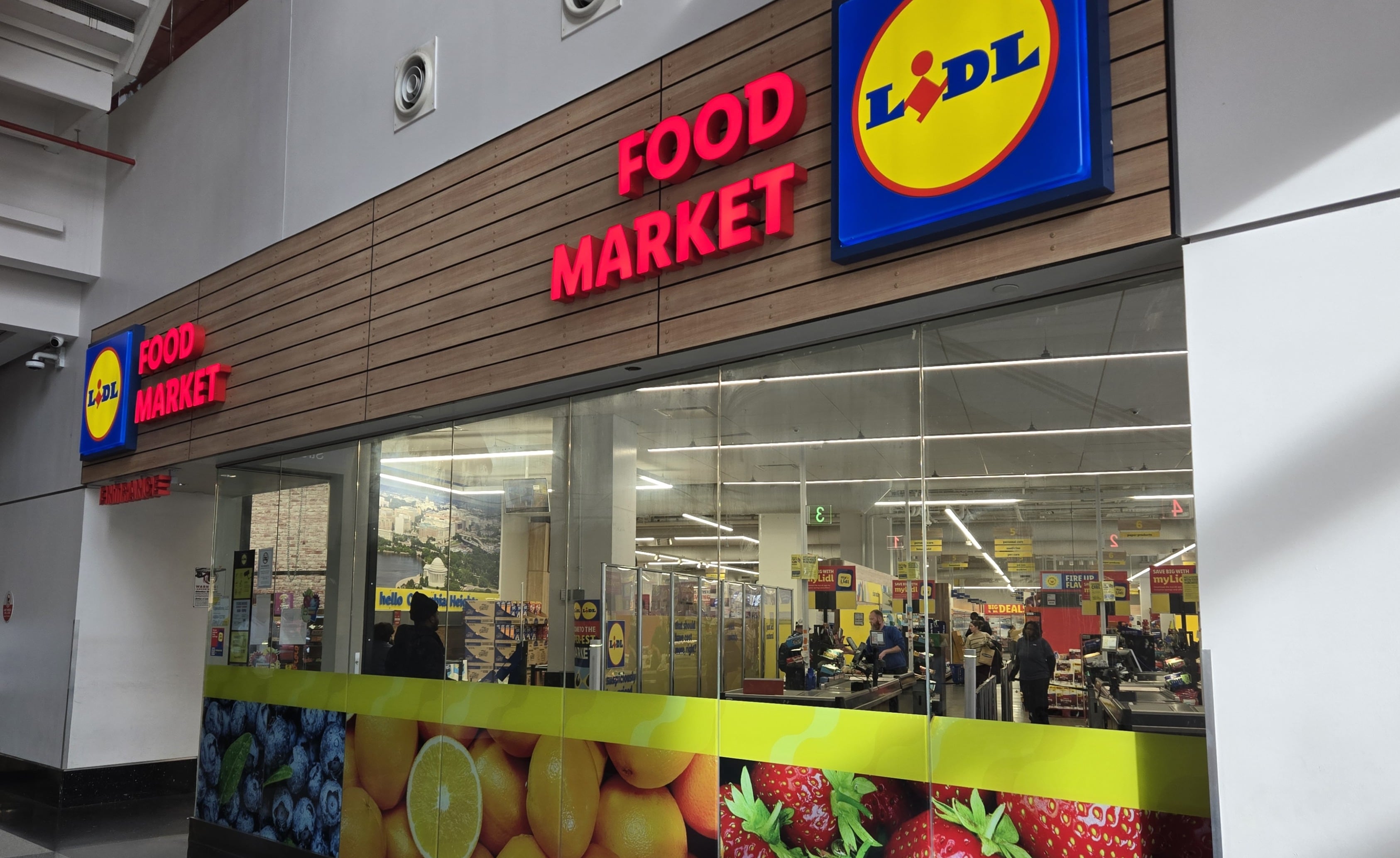Lidl US CEO Joel Rampoldt’s typical grocery cart – filled with premium proteins, fresh produce and still-warm baked goods all priced lower than most of the competition – captures the discount retailer’s winning mix of quality and value that helped it earn Newsweek’s Readers’ Choice Award for Best Supermarket in 2025.
The award, along with the selection of goods in Rampoldt’s cart, also underscores the positive impact of strategic changes he instituted to address consumer concerns, including about rising grocery prices, when he took the helm of Lidl US in August 2023.
Initiatives include carefully curating products to meet consumer needs while keeping costs down, offering partnership perks that ensure Lidl is suppliers’ first choice and how the retailer empowers employees to enhance the consumer experience and advance business priorities.
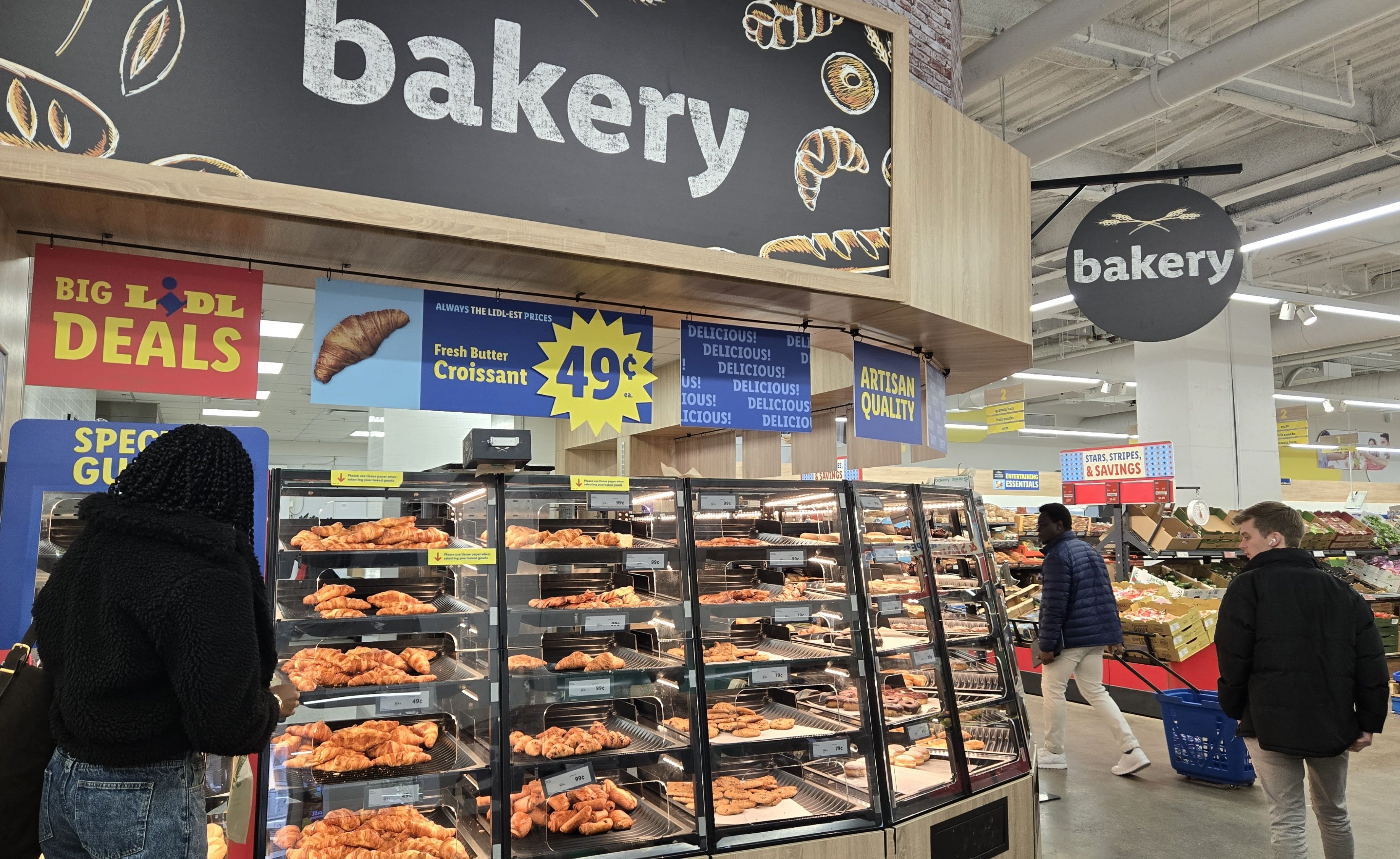
Optimizing SKU assortment
Rampoldt shared in an interview that the selection of imported Spanish ham, Italian prosciutto and Faroe Island salmon filets that often sit alongside Lidl’s private label Greek yogurt and “lots of fresh fruits and vegetables” in his cart highlight the strategic SKU rationalization that he helped institute after he joined Lidl US following a stint as partner and managing director at AlixPartners.
Rampoldt said at Groceryshop in Las Vegas earlier this month that he helped reduce Lidl US’ core SKUs from 4,500 to 3,250, prioritizing high-quality, competitively priced items and signature products like imported croissants – a move that boosts both operational efficiency and shopper satisfaction.
He explained he identified which products to keep and cut by placing them all on the floor alongside competitors’ products and systematically analyzing the quality and price point of each item along with their sales performance. The team also identified duplicates and made hard choices about which ones should stay or go.
“We just did that category by category through the entire store,” to ensure the selection included good, better and best options that met customer needs but also were manageable for the discount retailer, Rampoldt said from the main stage at the conference.
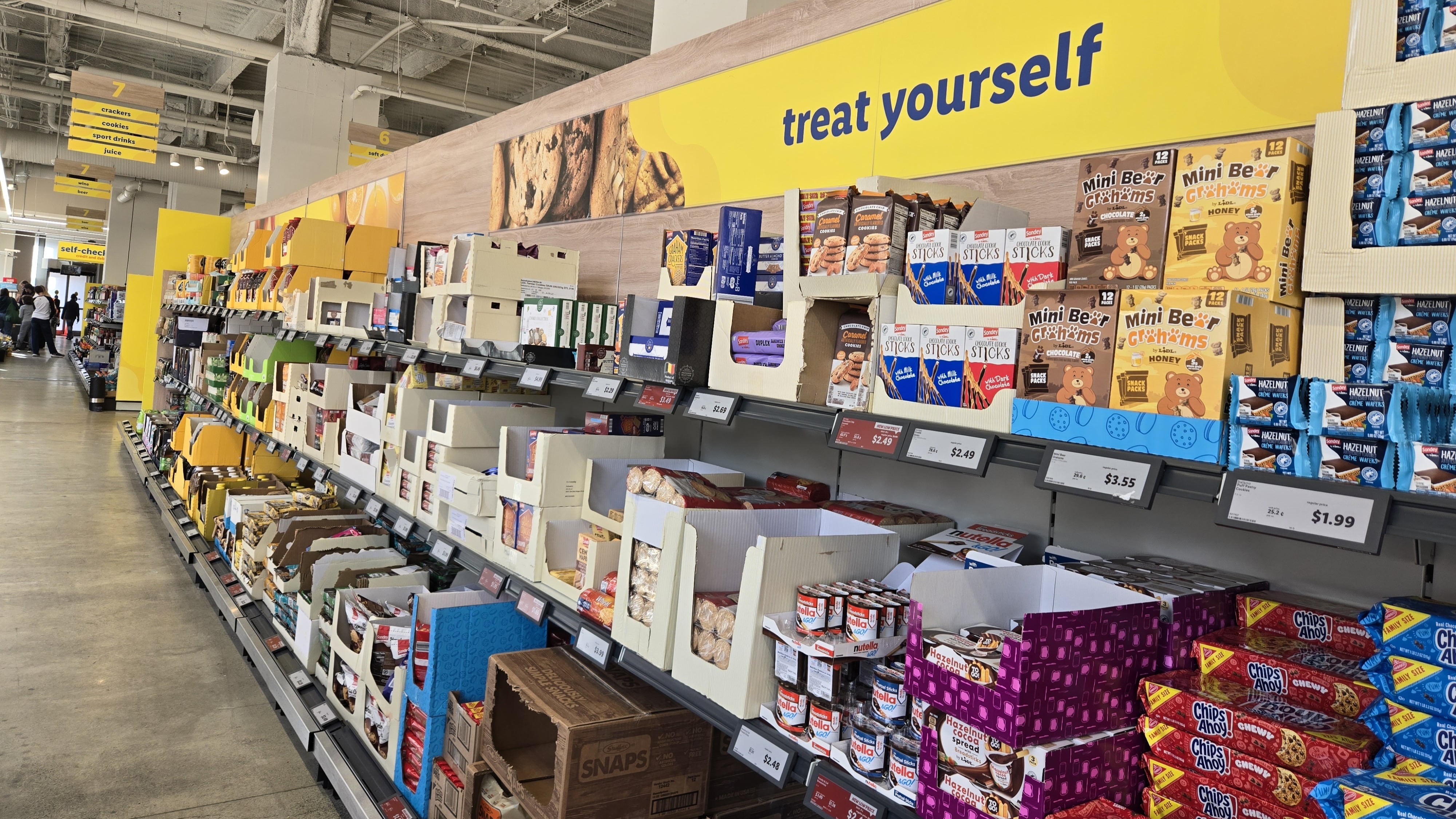
Signature items drive traffic
Under Rampoldt’s direction, the retailer also identified signature items that would set it apart from the competition and drive foot traffic, including the buttery croissants that Lidl imports and bakes in store, and which Rampoldt said in an interview he puts in his cart as a treat.
Lidl US opted to lower the price of the croissants to 49 cents – making it a posterchild for Lidl’s “extraordinary value,” according to Rampoldt.
“Every time we think the consumer couldn’t possibly become any more value-focused, they do. So, value is a big one for us. And value means different things to different people, but we have to be very, very sharp on value,” he said.
The retailer’s dedication to value means it will not raise prices on its croissants, even though they are impacted by tariffs, said Rampoldt. Instead, he said, the company looks for efficiencies elsewhere to offset higher costs.
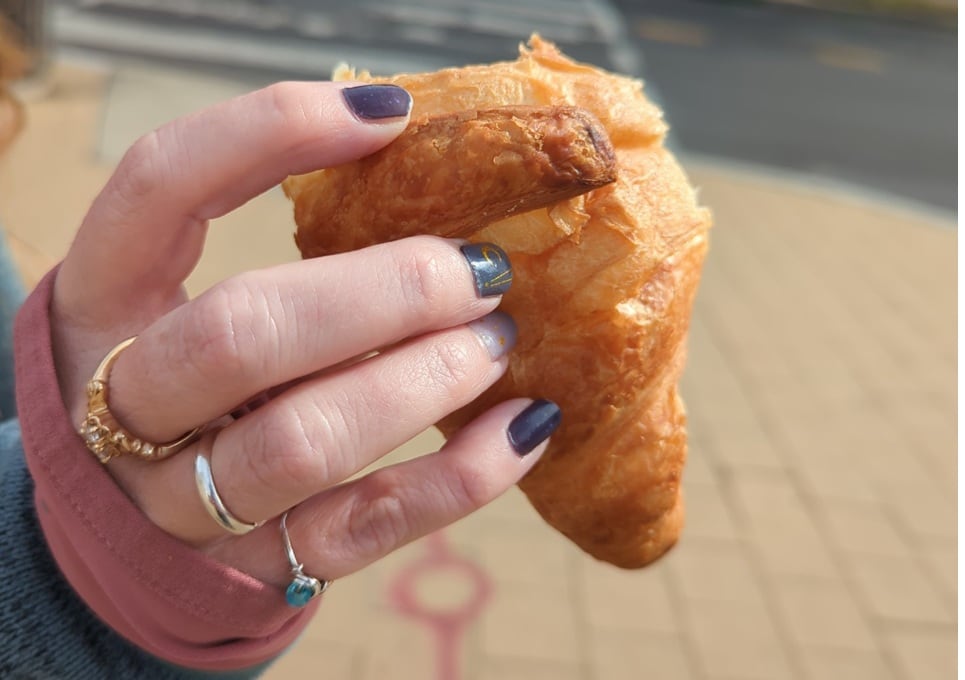
The low price is not the only element of value that sets the retailer’s bakery apart. It also will not compromise on ingredients, Rampoldt said. For example, it refuses to sell products with synthetic dyes.
This value is carried throughout the store, including to the meat department where Lidl’s poultry has no antibiotics ever, Rampoldt said.
Why Lidl prioritizes the ‘first 90-feet and the last 90-seconds’
The fresh meat, baked goods and range of fruits and vegetables in Rampoldt’s cart also reflect Lidl’s commitment to ensuring an enjoyable experience in what Rampoldt calls the “first 90-feet and the last 90-seconds.”
He explained in an interview: “The first 90-feet in our stores is fresh. When you walk in you see fresh flowers, fresh bakery, fresh fruits, fresh vegetables. Then you walk past fresh protein. And all those areas of the store need to be in great shape – in stock, clean, looking attractive at all times.”
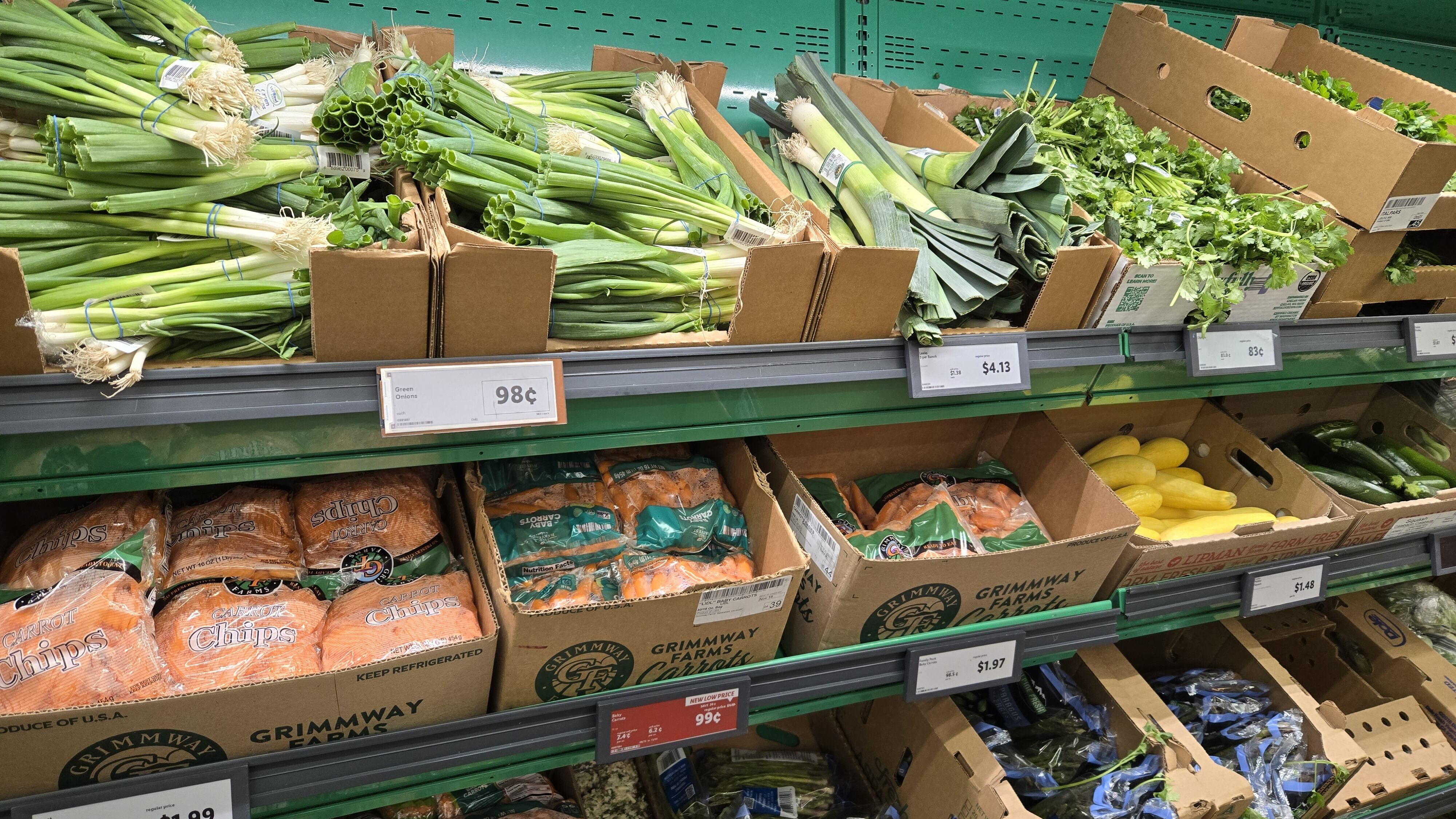
Rampoldt said it’s okay if other aisles are “a bit less perfectly arranged,” as long as the fresh area is neat and shows that Lidl’s low prices don’t come at the cost of quality.
“The last 90-seconds refers to the interaction as you are checking out,” which needs to be “really good” and “leave a good taste in customers’ mouths,” he said, adding the self-checkout cannot be “torture.”
To ensure a positive shopping experience, Rampoldt said his first course of business when joining Lidl US was to ensure the retailer hired the right people and invested in their success through training by empowering them to speak up when they had ideas for improvement.
For example, Rampoldt recalled on the mainstage at Groceryshop, before he started officially as the Lidl US CEO he spent a weekend packing fresh produce alongside employees in a store, where he learned the value of keeping everything as simple as possible to keep costs down without straining staff.
“It means constantly looking at the business and saying what is more complicated than it needs to be? What can we simplify? Where can we take a minute out of the process or where can we take 10 steps out of the process in the store so that it is simper, easier to execute and we can take costs out and reinvest that back into the business,” he told attendees.
Frontline employees often have the answers to these questions, which is why he adds that he always takes seriously suggestions from people in the field.
Lidl US also is embracing technology, like electronic shelf labels, to streamline labor and enhance the shopping experience.
How Lidl supports suppliers and why
The broad range of everyday staples in Rampoldt’s cart, most of which are sourced domestically, and specialty foods imported from around the world, also underscore Rampoldt’s and Lidl US’ dedication to be suppliers’ first choice as a retailer.
“When I got here and we had a new head of buying and purchasing join the team, one of the first things that we did was go on a road trip to all of our private brand suppliers, lay out a strategy, talk about how we operate globally, the principles that we want to live up to, and what they should expect from us as a trade partner, and the predictability,” Rampoldt said.
He added: “Long term contracts and mutual investment are all at the heart of Lidl.”
The retailer also prefers to partner with private label suppliers that are “small, growing, hungry and want more volume,” Rampoldt told Groceryshop attendees. He explained that Lidl US can help them grow through capital investments and a “very stable order” that allows them to invest with confidence in their facilities, Rampoldt said.
He added that the retailer also likes working with national brands that understand their products will be placed alongside store brands at a significantly lower price, but which believe their brands are powerful enough to stand on their own – even at a higher price.
What is next for Lidl US?
While Lidl US continues to perfect its go-to-market strategy and enhance its in-store experience and selection, it also is eager to expand its footprint responsibly, Rampoldt said in an interview.
“We are growing at what I would consider a modest pace for now, because we want to ensure that our business is stable and operating exactly the way we want it. We want to make sure we have our operations and commercial offering really down before we turn up the heat on growth,” he said.
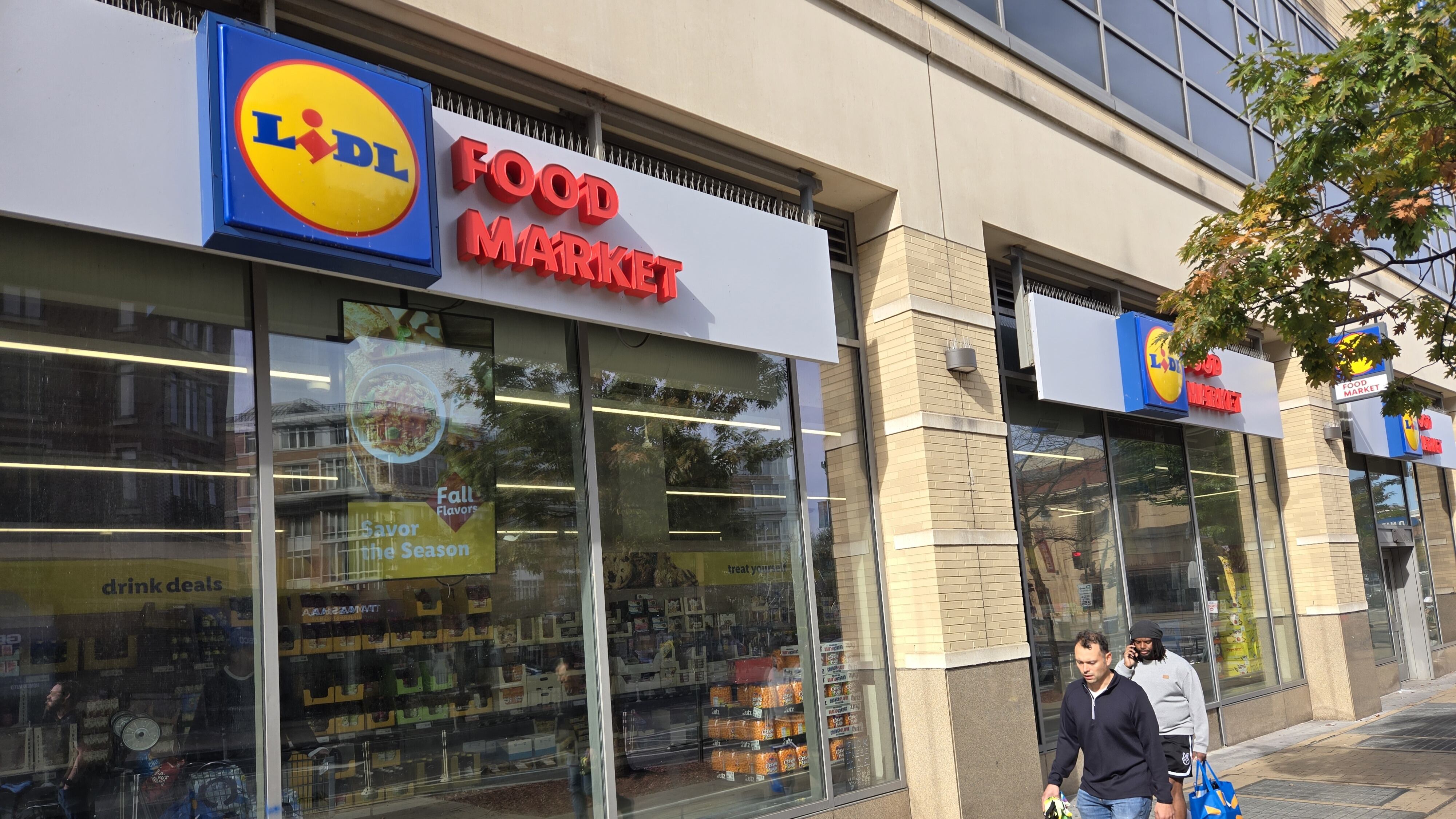
He explained that the company’s real estate strategy includes adding stores in areas where Lidl already has a foothold, in part to help “get those distribution centers humming,” and choosing highly visible locations.
“Our location is our most important form of marketing. We spend a lot of money on getting good sites so that customers see our stores,” he concluded.
As illustrated by the retailer’s focus on operational excellence, product selection, employment empowerment and cleaned up balance sheet, Rampoldt is positioning Lidl US for long-term growth and as a case study for successfully balancing value and experience.

